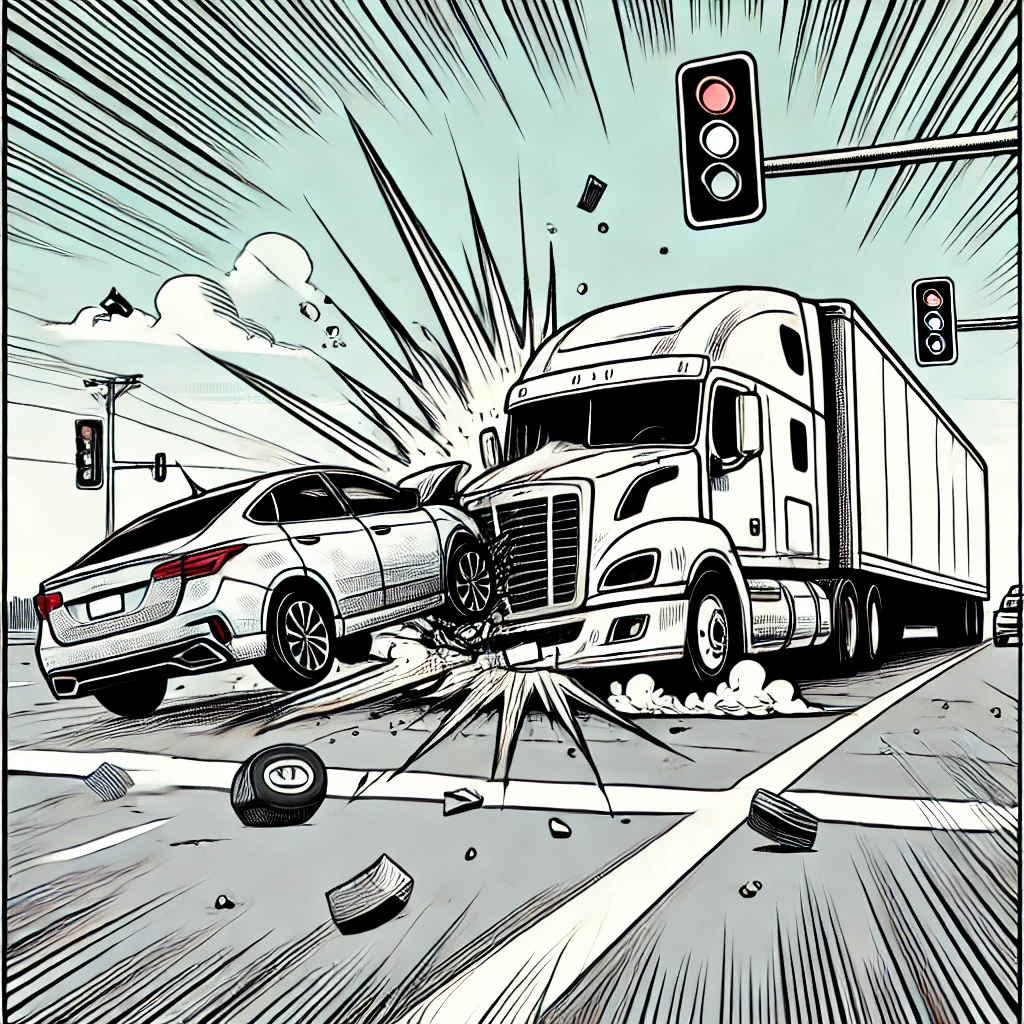Getting into a truck accident isn’t just terrifying—it can completely upend your life. Medical bills pile up, your vehicle might be totalled, and dealing with insurance companies is a headache no one asks for. The worst part? Trucking companies and their insurers are pros at dodging blame. If you’re not careful, they’ll spin the situation to make it seem like you’re the one at fault. That’s why knowing how to handle a truck accident lawsuit from day one is critical.
Whether looking for fair compensation or just trying to protect yourself from getting steamrolled by corporate legal teams, these tips can make a huge difference.

1. Get a Lawyer Who Knows Trucking Cases (Prepping For A Truck Accident Lawsuit)
Not all personal injury lawyers have experience with truck accident lawsuits—and that’s a problem. These cases involve complex federal trucking regulations, multiple liable parties (the driver, the trucking company, the cargo loaders, etc.), and insurance companies that play hardball.
A good truck accident lawyer will:
- Dig into the trucking company’s records (hours of service logs, maintenance reports, black box data)
- Fight back against lowball settlement offers
- Identify all possible sources of compensation (not just the truck driver’s insurance)
Most reputable truck accident attorneys offer free consultations, so there’s zero risk in reaching out. And since many work on contingency, they don’t get paid unless you win.
2. Lock Down Evidence at the Scene for Your Truck Accident Lawsuit
If you’re physically able, document everything right after the accident. The trucking company’s legal team will move fast to protect their interests—you need to do the same.
Here’s what to capture:
- Photos & videos: Damage to both vehicles, road conditions, weather, traffic signs, and skid marks
- License plate & truck details: Take note of the USDOT number (usually on the truck’s door), the company name, and the driver’s info
- Witness statements: Get names and contact details before they leave—police reports don’t always include them
Speaking of police, always call them. A police report is one of the strongest pieces of evidence in a truck accident lawsuit.
3. Don’t Rely on the Police Alone—Get Your Own Witnesses
Truck accident scenes are chaotic. Officers are often more focused on directing traffic and helping the injured than tracking down every witness. That means some crucial testimonies might never make it into the official report.
If you see anyone who stopped to help, get their name and number immediately. Their statement could make or break your case later.
4. Seek Medical Attention ASAP (Even If You Feel “Fine”)
Adrenaline is a hell of a drug. After a crash, you might think you walked away unscathed—only to wake up the next day barely able to move. Some injuries, like internal bleeding or concussions, don’t show symptoms right away.
Getting checked out by a doctor immediately does two things:
- Ensures hidden injuries don’t get worse
- Creates a medical record linking your injuries to the accident
If you wait too long to see a doctor, insurance companies will use that against you. They’ll argue your injuries weren’t serious or, worse, weren’t even caused by the accident.

5. Follow Doctor’s Orders—No Matter What
Skipping medical appointments, ignoring physical therapy, or going back to work too soon can wreck your lawsuit. Insurance companies love to dig through medical records to find gaps in treatment. If you don’t follow through, they’ll argue that you’re exaggerating your injuries.
Even if the prescribed treatment seems excessive (like months of physical therapy for a minor injury), do it anyway. It’s not just about recovery—it’s about ensuring you get the full compensation you deserve.
6. Stay Off Social Media (Seriously, It Can Ruin A Truck Accident Lawsuit)
Posting about your accident online might seem harmless, but it’s a goldmine for insurance adjusters. Even something as simple as saying “I’m okay” could be twisted into proof that you’re not actually hurt.
Example:
- You post a photo at a friend’s BBQ a week after the accident.
- Insurance lawyers claim you’re “healthy enough to party,” so your injuries must not be that bad.
Play it safe—keep the details of your truck accident lawsuit offline until your case is resolved.
7. Never Give a Recorded Statement Without Legal Advice
Insurance adjusters actively try to make you say things that weaken your case. If they ask for a recorded statement, politely decline and tell them they should speak to your lawyer.
Common traps they use:
- Asking misleading questions to get you to admit fault (even partially)
- Pressuring you to downplay your injuries
- Getting you to agree to an early settlement (which is always lower than what you deserve)
Also, never sign a blanket medical release—it gives them access to your entire medical history, and they’ll use any past injuries as an excuse to reduce your payout.
8. Know Your State’s Deadline for Filing a Truck Accident Lawsuit
Every state has a statute of limitations for filing a truck accident lawsuit—usually around two years. Miss that deadline, and you lose your right to sue.
But waiting too long can hurt your case even if you’re still within the time limit:
- Evidence disappears (dashcam footage gets deleted, skid marks fade, records get “lost”)
- Witnesses forget key details
- Insurance companies argue that your injuries must not have been serious if you waited so long to act
Bottom line: The sooner you file, the stronger your case.
Final Thoughts on Truck Accident Lawsuits
Truck accident cases involve complex legal issues. Trucking companies and their insurers will do everything they can to limit their liability and pay you as little as possible. That’s why you need a strong legal strategy from day one.
To maximize your compensation:
- Hire a lawyer with truck accident experience
- Gather solid evidence early
- Follow all medical advice
- Avoid social media and tricky insurance traps
- File your truck accident lawsuit before it’s too late
The road to justice isn’t easy, but if you play it smart, you’ll give yourself the best shot at getting the compensation you actually deserve.
Author: Jake Callahan
Bio: Jake Callahan is a legal writer with a background in personal injury law. He specializes in motor vehicle accident lawsuits and insurance disputes.

